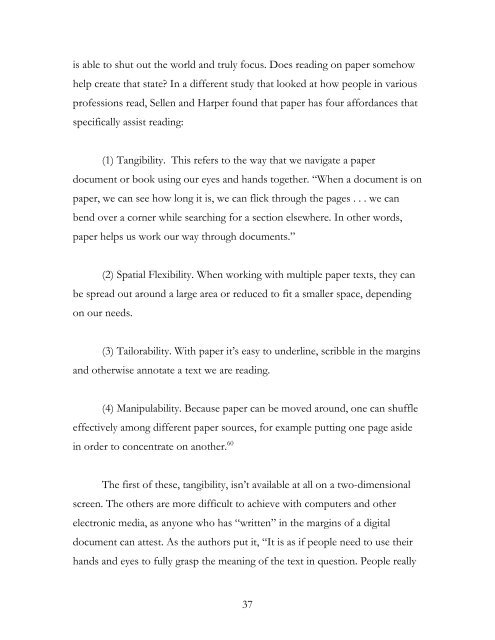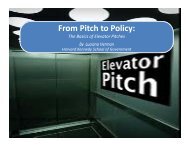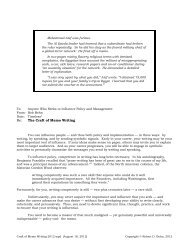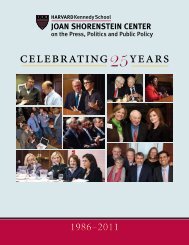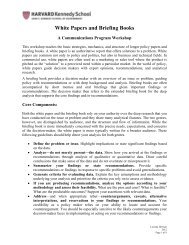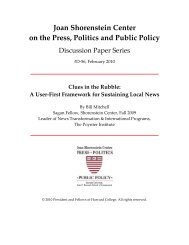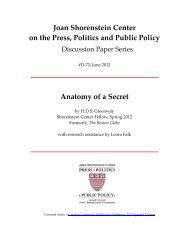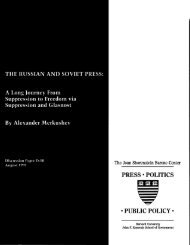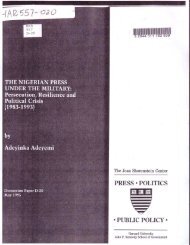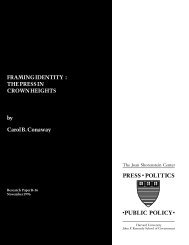Why Paper Is Eternal - Joan Shorenstein Center on the Press ...
Why Paper Is Eternal - Joan Shorenstein Center on the Press ...
Why Paper Is Eternal - Joan Shorenstein Center on the Press ...
Create successful ePaper yourself
Turn your PDF publications into a flip-book with our unique Google optimized e-Paper software.
is able to shut out <strong>the</strong> world and truly focus. Does reading <strong>on</strong> paper somehow<br />
help create that state? In a different study that looked at how people in various<br />
professi<strong>on</strong>s read, Sellen and Harper found that paper has four affordances that<br />
specifically assist reading:<br />
(1) Tangibility. This refers to <strong>the</strong> way that we navigate a paper<br />
document or book using our eyes and hands toge<strong>the</strong>r. “When a document is <strong>on</strong><br />
paper, we can see how l<strong>on</strong>g it is, we can flick through <strong>the</strong> pages . . . we can<br />
bend over a corner while searching for a secti<strong>on</strong> elsewhere. In o<strong>the</strong>r words,<br />
paper helps us work our way through documents.”<br />
(2) Spatial Flexibility. When working with multiple paper texts, <strong>the</strong>y can<br />
be spread out around a large area or reduced to fit a smaller space, depending<br />
<strong>on</strong> our needs.<br />
(3) Tailorability. With paper it’s easy to underline, scribble in <strong>the</strong> margins<br />
and o<strong>the</strong>rwise annotate a text we are reading.<br />
(4) Manipulability. Because paper can be moved around, <strong>on</strong>e can shuffle<br />
effectively am<strong>on</strong>g different paper sources, for example putting <strong>on</strong>e page aside<br />
in order to c<strong>on</strong>centrate <strong>on</strong> ano<strong>the</strong>r. 60<br />
The first of <strong>the</strong>se, tangibility, isn’t available at all <strong>on</strong> a two-dimensi<strong>on</strong>al<br />
screen. The o<strong>the</strong>rs are more difficult to achieve with computers and o<strong>the</strong>r<br />
electr<strong>on</strong>ic media, as any<strong>on</strong>e who has “written” in <strong>the</strong> margins of a digital<br />
document can attest. As <strong>the</strong> authors put it, “It is as if people need to use <strong>the</strong>ir<br />
hands and eyes to fully grasp <strong>the</strong> meaning of <strong>the</strong> text in questi<strong>on</strong>. People really<br />
37


